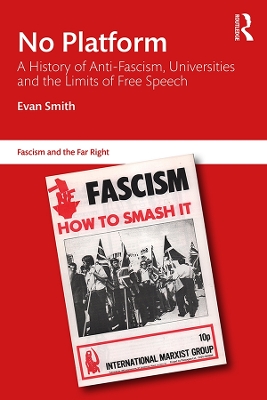Routledge Studies in Fascism and the Far Right
2 total works
This book is the first to outline the history of the tactic of 'no platforming' at British universities since the 1970s, looking at more than four decades of student protest against racist and fascist figures on campus.
The tactic of 'no platforming' has been used at British universities and colleges since the National Union of Students adopted the policy in the mid-1970s. The author traces the origins of the tactic from the militant anti-fascism of the 1930s-1940s and looks at how it has developed since the 1970s, being applied to various targets over the last 40 years, including sexists, homophobes, right-wing politicians and Islamic fundamentalists. This book provides a historical intervention in the current debates over the alleged free speech 'crisis' perceived to be plaguing universities in Britain, as well as North America and Australasia.
No Platform: A History of Anti-Fascism, Universities and the Limits of Free Speech is for academics and students, as well as the general reader, interested in modern British history, politics and higher education. Readers interested in contemporary debates over freedom of speech and academic freedom will also have much to discover in this book.
Extreme Right in Australia
by Aurelien Mondon, Andy Fleming, and Evan Smith
This book provides a comprehensive history of the Australian extreme right as well as an analysis of the pattern this country followed in the creation and shaping of this political group, compared to that of other western countries.
While it will offer a chronological account of its various movements, it will also investigate the reasons why the Australian extreme right failed to gain the same prominence its European counterpart has gathered over the past two centuries. This book will provide an original and critical analysis of the creation of the Australian ethos, which will be argued to have played a major part in preventing the rise of the extreme right through the co-opting of its politics within the mainstream.
The book offers an insightful and innovative account of Australian history, as well as a compelling argument as to the development of the Australian ethos and national identity. It is not only a historical account of the development of the extreme right, it is also an analysis of its impact on contemporary politics. As such, it fills a gap in the existing literature and also adds to the debate regarding the present state of politics in Australia

